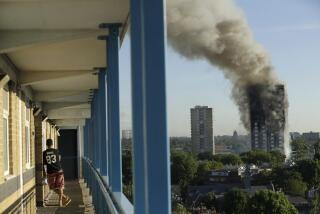Mobil Raps Report That Blames Accidents on Management
- Share via
Mobil Oil officials on Wednesday criticized a consultant’s safety study that blamed lax management for accidents at the oil company’s Torrance refinery, calling it a sloppy job that contains major errors.
The author of the report, which was released Saturday, conceded that there might be discrepancies in the study but defended it as an honest job.
Torrance officials demanded the $88,000 study after a series of accidents at the plant, beginning with an explosion and two-day fire in November, 1987.
Since then, in four separate accidents, one worker fell to his death, another was killed in an explosion, four workers were seriously burned and eight others were injured.
Mobil agreed to pay for the inch-thick safety report, which was written by Gage-Babcock & Associates and the Mittelhauser Corp.
The report’s main conclusion--that the company was lax in enforcing its safety rules--was based on a finding that few written disciplinary reports were drawn up for safety infractions. “Despite our repeated requests, Mobil could provide us with only four disciplinary action reports, three of which are dated April 10, 1979, or earlier,” the report said.
But Mobil refinery manager Wyman Robb said Wednesday that oil company officials never were asked to provide all disciplinary reports--only a few. “We gave them four examples,” he said.
In fact, he said, 165 employees were disciplined--with written reprimands, suspensions, demotions or firings--for safety violations between 1978 and 1988. An additional 82 were punished for poor work performance in that period, he said. Some management personnel were given written reprimands after the 1987 explosion and fire, he said.
“Certainly, that exhibits a record of having complied with our own policies and procedures,” Robb said.
William E. Backes, Los Angeles manager for Gage-Babcock, said it would be unprofessional to comment directly on Mobil’s response to the report.
He added, however, that “we did an honest job as we see it. . . I’m sure that in any study we might do . . . there might be discrepancies.”
More to Read
Inside the business of entertainment
The Wide Shot brings you news, analysis and insights on everything from streaming wars to production — and what it all means for the future.
You may occasionally receive promotional content from the Los Angeles Times.










